coping with adhd
the discovery came at a most ill-fated time. i was at cambridge doing an mphil in social anthropology. i was undergoing medical treatment for i had been mugged by unidentified village thugs along garrett hostel lane bridge on the river cam. i nearly got thrown into a canal between trinity and clare college. there was resentment over japanese students, tourists and japanese-endowed structures sprawling across the city. surrounded frequently by former classmates and friends at tokyo university, my attackers thought that i was japanese.
there were four other asian-looking victims along the same route that night. three were critically injured and the fourth one was pronounced dead upon arrival at the new addenbrookes hospital. i was the only one who survived with less-damaging scratches on my face, arms and legs. back then, it did not seem relevant to problematize the complicated scheme of things. i was more concerned about getting my postgrad.
but during one of my subsequent medical sessions, i began complaining more about my clumsy motor skills. i had frequent street collisions around cambridge on a bike. i was subjected to a series of other tests. ultimately, adhd was uncovered.
learning disability experts are frequently amazed every time they hear about my affliction. theoretically, i should not possess the resilience of one who has chosen to dabble in teaching, speaking publicly, research and creative writing. many times, i have been construed as someone who is either weird or stupid.
when i entered the university of santo tomas elementary school at age 5, i could not make sense out of my teachers’ basic instructions. i was unable to sing and dance in unison with the other students. i failed to understand the concept of subtraction (as opposed to addition) as well as 0 (as opposed to 1 or more). as i moved from one academic level to another, it often surprised me how i passed succeeding quizzes, exercises and examinations. i could not initially understand many of the books i tried to read. during exams, however, answers turned up instinctively. they came successively as waves of inner whispers coming out of my head.
things got worse during physical education classes. i could not coordinate my limbs with my upper body. i was often laughed at. i failed to accurately execute basic drills in the monkey bars. i faltered in basketball, gymnastics, soccer, baseball, judo and arnis. i only excelled in running. i flashed occasional moments of brilliance in running-related street games such as patintero, agawan base and siyato.
every morning, i was also unable to tie my shoes the “ribbon knot” way. i struggled learning tricks just to be able to properly lace up. i began prevailing over such intricacies after primary school.
come recess time, i also had problems with spoons, forks and knives. quite often, food spilled a la jackson pollock on my school uniform every time i worked with utensils. consequently, i sought refuge in dimly-lit corners of the school canteen. away from my classmates’ prying eyes, i rapidly nibbled sandwiches, curly tops and cheese curls. i finally made good use of knives, spoons and forks without calling too much attention in time for my senior prom.
i think it was most discomforting to follow through class lectures and discussions. it also took me ages to acquire the facility to study more effectively. tragically, i could not understand more than half of what runs through every class hour. i felt sleepy during lectures, and jittery during quizzes and recitations. my knees, hands and jaws also trembled.
other parents and kids at primary school had frequently remarked that i was too “slow.” but teachers like milagros bautista-villarama, sylvia fernandez, teresita alon, oscar bautista, elizabeth duff-mendoza, januaria and george bareo, dolores lualhati and aida jurilla came to my rescue. painstakingly, they clarified threads i could not comprehend after each class. before midnight, my parents would re-read these school lessons until they perceive a certain mastery. i finally got to play around with school lessons after going through the same text at least three or four times.
i took up these growing up experiences with me so i can overwhelm greater challenges: friendships, relationships, screening exercises to universities, proficiency examinations in the foreign languages, work evaluations, dissertations and moving past discouragements.
i am still perpetually restless. i fiddle with my hands or feet. i remember unrelated pieces of trivia. i wiggle during lectures and meetings. i possess a compulsion to run, climb a tree, or get out of my seat in situations where sitting or quiet behavior is expected. i blurt out answers before comprehending entire questions. i find it hard to take turns or wait in lines. i remain socially inept because i could not follow transitions during conversations.
but i have gone this far. i can only be grateful to my parents, teachers and friends for my persistence, drive and discipline to overcome adhd.
(an earlier draft of this narrative appeared in my fair maladies! [cristina pantoja-hidalgo, editor]. quezon city: milflores publishing, 2005: 25-27)
****
Is it plain mischief or AD/HD? by Linda Bolido
Published on Page C1 of the November 7, 2006 issue of the Philippine Daily Inquirer
UNDIAGNOSED, Attention Deficit- Hyperactivity Disorder (AD/HD) may appear like a failure in parenting, an unwillingness and/or disability to enforce discipline on a headstrong, extremely mischievous, seemingly uncontrolled child.
And indeed, pediatrician Dr. Harland R. Gephart said, at a very early age, it would be difficult to separate simple, ordinary childish behavior from the manifestations of the more disturbing disorder.
Gephart, medical director of the Center for Attention Deficit Disorders at Group Health Cooperative of Puget Sound and pediatrics professor at the University of Washington in Washington, United States, was in Manila recently for the third National Conference on AD/HD.
“Symptoms of AD/HD are symptoms of all children. All kids can be fidgety or overactive or distractible… it’s a matter of degree…. If [a child is fidgety and distractible] at age 2 that’s normal but if (he/she is) that way at age 8, to a degree much more than (his/her) peers, that is abnormal.”
The AD/HD Society of the Philippines said, “Persons with AD/HD suffer from a condition characterized by age-inappropriate hyperactivity, impulsivity and/or poor attention span. Symptoms are often severe enough to cause impairments in academic and social functioning. In many cases, this leads to low self-esteem, very poor academic performance and serious behavioral problems.” It is estimated that 3-5 percent of the Philippine population aged 0-14 years have AD/HD.
Gephart cautioned about jumping to conclusions when children showed symptoms associated with AD/HD, pointing out that younger children might just be overactive and inattentive because of age. “At age 4-5, [the child] may not have reached the developmental stage [and] is unable to just sit still.”
Age for diagnosis
He said this was why there were problems about diagnosing the disorder when a child was 4-6 years old. Although there had been attempts to do so, he said no good criteria had been developed so far because there had been little research done at that stage.
Gephart added that one of the rules in the diagnosis of AD/HD was to get information from two sources that corroborated each other. For a 4-year-old child, only the parents would be able to provide sufficient information.
At age 6, when the child starts formal schooling, a teacher or teachers could add their observation to that of the parents. Standardized rating scales are used to establish if a child is behaving like most of his peers or is acting in a worrisome way.
The expert said, when parents brought to him children aged 4-6 on suspicion they could be suffering AD/HD, he would recommend behavioral modification and changes in parenting techniques. Some of the symptoms associated with AD/HD, primarily hyperactivity, disappeared as a child grew older.
He said majority of boys were found to have AD/HD in the early school years starting from kindergarten because they were found to be overactive and destructive, causing behavioral problem in the playground, for instance. In girls, the diagnosis was often made later—6th or 7th grade or even high school—because they were not overactive or destructive.
Though it might be a little difficult to spot AD/HD cases, the disorder cannot be ignored either because of its impact on behavior and academic performance. It is also important that AD/HD be diagnosed before adolescence when it becomes difficult again to identify the disorder.
Gephart said adolescents with AD/HD tended to drop out of school and fail to graduate, get into trouble with the law, and were more at risk of engaging in hazardous behavior—3-4 times more likely to use and abuse drugs, 3-4 times more likely to get involved in automobile accidents, among others. They tended to be impulsive and were more likely to be risk-takers and thrill-seekers.
These possibilities made it important, Gephart said, to provide expert care as soon as AD/HD was diagnosed even though it had been found that some people learned to cope with the disorder and managed quite well in adulthood.
Genetics
The expert said, though the true cause of AD/HD was unknown, studies had shown there was a strong genetic factor involved. “If you diagnose AD/HD in a kid, 50 percent of the time the parents would recognize they had the problem” and “30 percent of the time another sibling would have it,” Gephart said.
Studies showed twins were likely to share the disorder, even those who had been separated and raised in different environments. “Whatever the cause [of AD/HD], the genetics is huge,” Gephart said.
Other factors that were found to contribute to a child’s developing AD/HD were mothers who drank or smoked, premature birth (the smaller the infant the higher the risk), certain kinds of head injury, and lead poisoning.
But what triggers the disorder to manifest itself several years after birth remains a mystery. The pediatrician said, “We don’t know whether it is environmental, an infection…”
Gephart said very specific guidelines were drawn up for pediatricians and psychologists for both diagnosis and treatment and medical professionals were trained in the use of these standards. For pediatricians, the training usually occurred during their residency. Gephart said AD/HD tool kits were developed that consisted of compilations of resources and questionnaires.
As for management, the expert said it was found AD/HD sufferers “did better in [a] structured environment” such as in caring, nurturing families that shared meals and did many things together. Even military service, with its rules and structures, seemed to help some people.
Medication
Interestingly, in terms of medication, though AD/HD involves hyperactivity, stimulants are among the drugs prescribed to ease the symptoms of the disorder, which is theorized to result from some brain cells’ inability to relate to each other properly.
Gephart said the drugs calmed down those people diagnosed with the disorder. The website ADHDbalance.net said, “It is believed that these drugs (stimulants) work by helping nerve cells in the brain better communicate with one another.”
One non-stimulant approved by the United States Food and Drug Administration is also prescribed.
The AD/HD Society of the Philippines is at Room 210, 2/F, Center for Social Policy and Public Affairs, Social Development Complex, Ateneo de Manila University, Katipunan Road, Quezon City, tel. 9273463/4266001 loc. 4649; fax 9273463; e-mail adhdsociety@yahoo.com; and website www.adhdsociety-ph.org.
Labels: adhd, learning disability












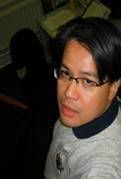



































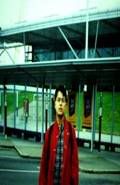
















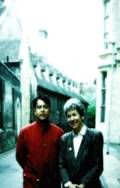

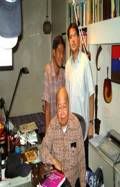

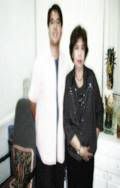
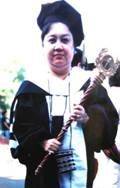




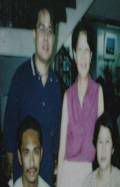
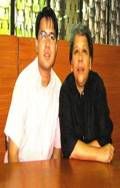
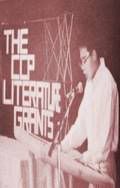
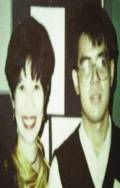

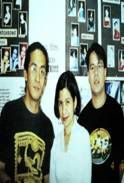
















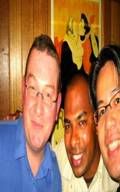
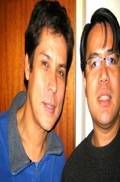


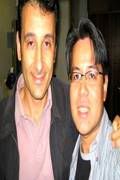
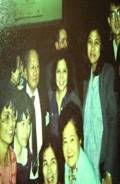
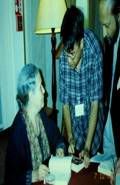
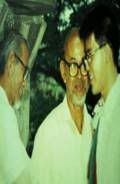

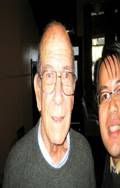
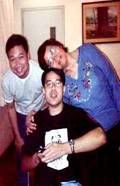
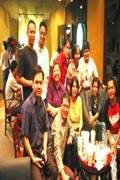

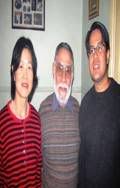

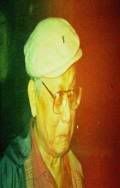
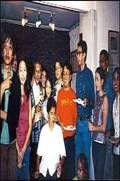
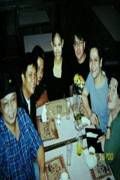

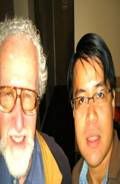


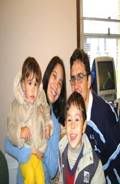
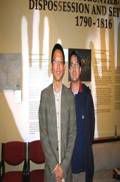
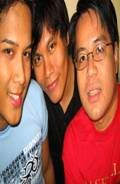

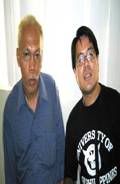
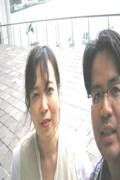
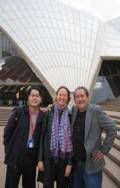
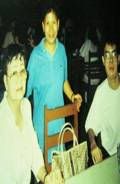
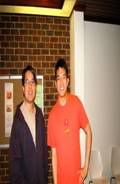


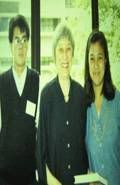
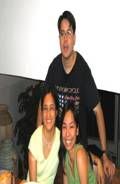
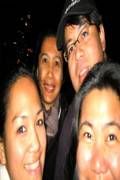
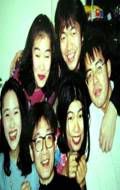

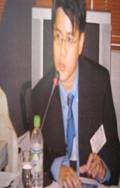





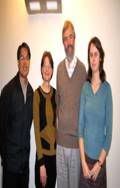
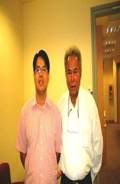
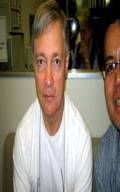
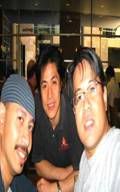
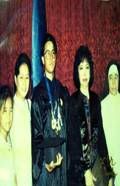
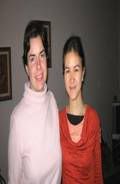
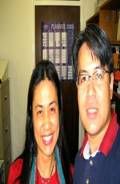
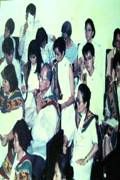

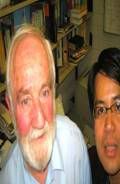



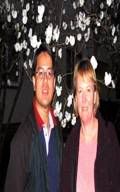
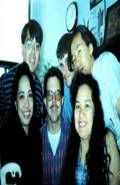


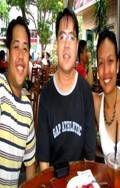





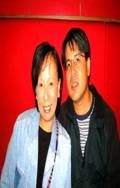


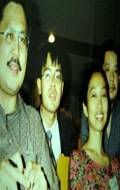
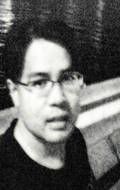


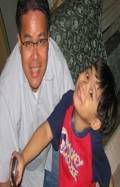
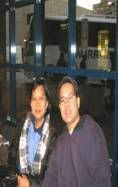
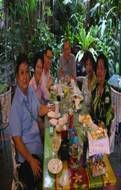
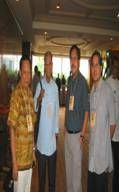
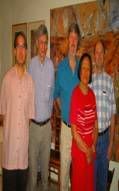
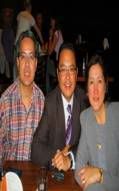
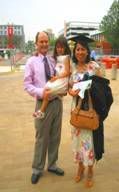
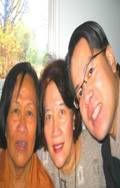
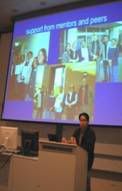
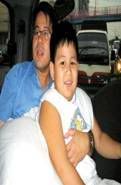
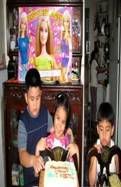
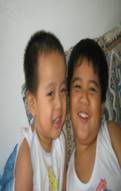





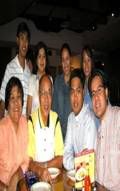








14 Comments:
hooray for adhd!
i have problems with depth perception din. i need a How's my driving? sticker :p
i didn't think i had it. i just thought i was really magulo, masahayin and flat-footed hahaha!
after the diagnosis though, a lot of things were explained. i know na why i easily get bored with people, things and life in general. i get why i have to read two or three books at the same time. i understand why i could get by without taking notes in some classes, but math was like 2x+why?
i'm just emracing it. it makes me look smart pati kasi i remember what phosphenes are and what you call a camel with one hump heehee
plus it's come really handy while watching jeopardy or game ka na ba?
vera that's why we all get along. it took me ages to understand why. cheers,
w.
aha! so that's why you fell asleep when I was doing my report in CW101, I thought I was just that boring..hehehe. Just kidding! First of all, I wouldn't think you have adhd because you were so attentive to all of us students back in my CW101 class and I would never forget your Valentine dinner treat to us at Chocolate kiss. Anyway, I believe the comprehension of a pure heart and soul is what matters more, and those are the things you possess that not all people have. Think of St John Vianney. God bless you always, I hope all is well in your studies. :)
thanks florianne. everything is a struggle. but the disorder allows me to have more sensitivity to the feelings of others. Which explains why I believe that the best way to derive a good performance from a student is by way of encouragement and positive energy.
must run in the family. i'm 90% certain that i have undiagnosed adhd (i'm surrounded by clinical-types, but i don't seek diagnosis as matter of principle - delusions of invincibility, probably).
the lucky ones of us (which sounds like you are one, too), compensate for whatever shortcomings, often times subconsciously. when i look back on my life, i realize that my multiple interests and pursuits from reading to music to sports was one subconscious way. not that i was particularly good at any one thing; i saw myself as a "jack of all trades, master of none".
when i entered college, and met other people who had similar ways of doing things, i started realizing the idea of possibly being adhd-affected.
so there were other things that i started doing more "consciously". i would always sit in the front of the room for classes (not because i was more studious than anyone else, but just so i could make it through the class without my eyes glazing over).
i would use my tendency towards procrastination to my advantage (still a tough thing today). i tend to operate really well under pressure. it's always a cautious gamble to know when laziness must stop, and it's time to get to work.
these days, at work, it usually expresses itself in my work space. i'm more productive when i have a dozen things going on at once, but always i have to rein myself in sometimes to breathe.
it runs seemingly. indeed! but it keeps members of the family firmly on the ground.
wow, i wouldn't have guessed ...
it really just goes to show that a lot has got to do with one's attitude in life, and in your case, how you did not allow the adhd to get into the way of striving for excellence. bilib ako sa iyo, and for everyone like you :)
lampel--it was very tough. wherever i go, i was often alone and misunderstood. it took time for classmates and colleagues to know me. i had to work hard every time. i pushed my energies initially to prove people wrong. as i got older and after being overwhelmed with opportunities all over the world, i realized that i can be an instrument to inspire others. i felt i would be most effective by teaching in the university. students need a lot of encouragement and support. we need a lot of positive energy in the academe.
hi sir wendell!
i guess we all have our little quirks. found out a little after college that i'm manic depressive :P but i don't mind, i seem to churn out the most beautiful things when i'm depressed :)
...ok, the meds help, too. lol!
sir, i need your email address... is it the same as before?
tschüß!
darra, great to hear from you! how's germany? same email or send emails to my yahoo address: todai_mitaka@yahoo.com take care!
Wendell, I congratulate you on having the sticktoitiveness to graduate from university and make a life for yourself despite the disadvantage of having ADHD. You seem to come from an excellent and supportive family.
I have all my life had many of the difficulties described by you; I found an excellent doctor who diagnosed ADHD and prescribed medication which has enabled me to do things which I have never before been able to do, and to stop doing things which I was previously unable to stop doing. My life is still nowhere near as successful as yours, but has improved a million percent, and continues to get better. Hard to believe that a few pills could make such a difference. Of course, gaining an understanding of my difficulties helped a great deal, too.
I hope treatment for ADHD will ease your life as much as it has eased mine.
thanks for writing matthew. we need to encourage others about this condition and about getting over many difficulties. thanks again and take care. w.
hey wendell,
interesting read about ur belated adhd diagnosis. that explains a lot!
rosa ling sends her hello. she now heads quantum academy here in gensan city. :)
hi gilbert!
say hello to rose ling. she is a good friend. very kind and warm-hearted. tell rose im always in touch with ate cora, her friend in u.p.
btw, i met msu-dadiangas friends like rodney jubilado in k.l. and mandi jalimao in singapore. they are both doing very well.
our silliman (now dumaguete) writers' workshop batchmates have been wondering about you. do keep in touch from time to time.
cheers.
w.
Post a Comment
<< Home